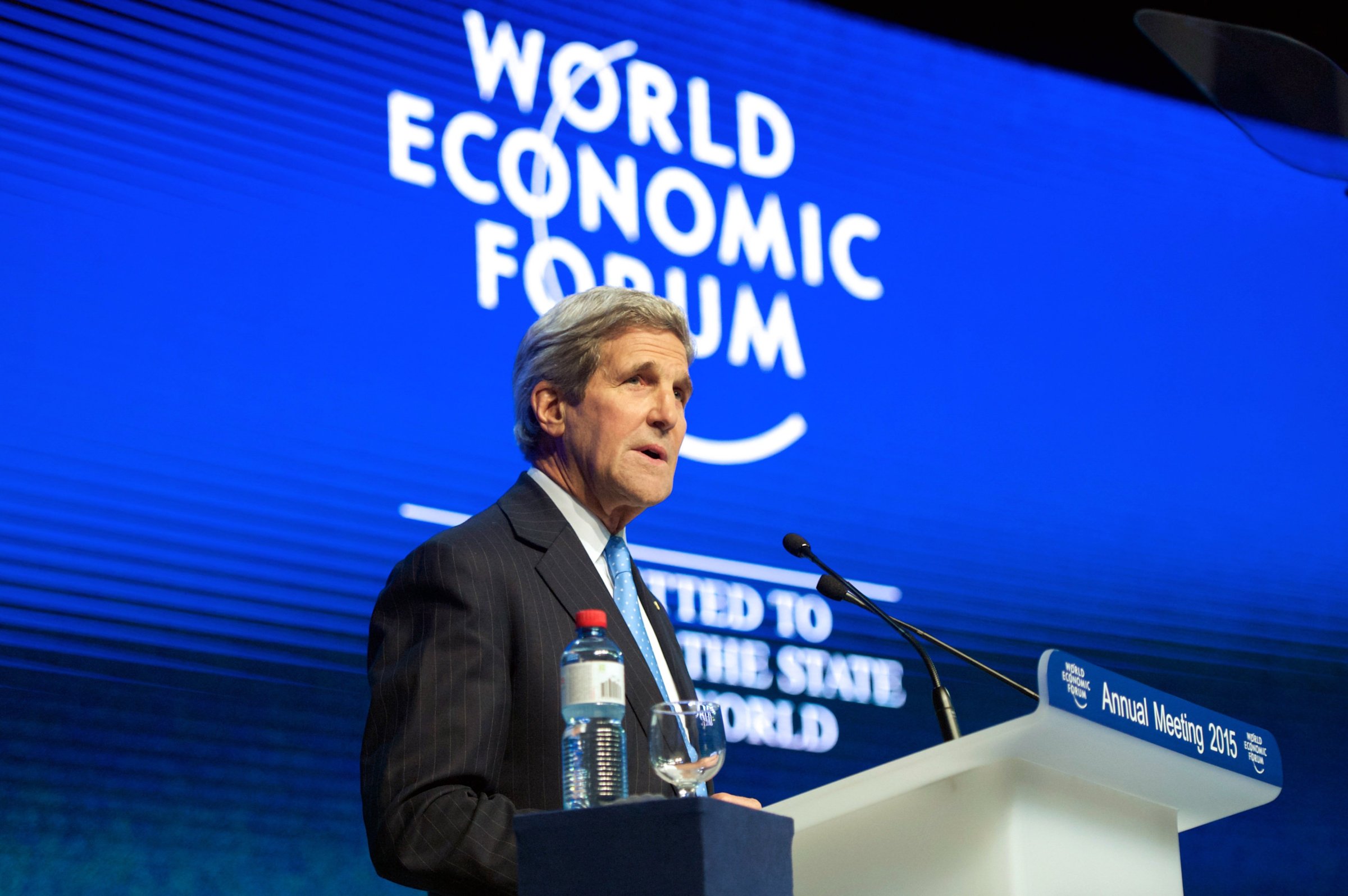
Talk at the World Economic Forum’s annual meeting in Davos turned to the fight against terrorism Friday, with French President François Hollande and U.S. Secretary of State John Kerry encouraging the influential world figures gathered here to step up efforts to fight Islamist extremists.
Kerry told the audience that the fight against terrorism would include a military component but also needed to address the economic and educational conditions that can provide fertile ground for extremists. “This fight will not be decided on the battlefield, but in the classrooms, workplaces, places of worship of the world,” he said. Kerry said he would be traveling shortly to Nigeria, whose government is waging a war against the increasingly emboldened Islamist group Boko Haram.
Hollande, who led more than one million people in a unity rally in Paris following terrorist attacks in the city this month that left 17 people dead, called on business leaders and governments to cooperate against extremists. “France has reacted and taken measures, but there also needs to be a global, international response,” he said. “It needs to be international and shared, shared between the states who have to bear responsibility on the front line, but also by businesses, particularly the largest ones, who can also take action.”
Hollande also signaled that France’s military involvement in Africa could grow. “In Africa, France is on the ground and it will continue to be so more than ever before,” he said. “It will be present to bring help to those countries who are having to deal with the scourge of terrorism. I’m thinking of the Sahel, in particular, but also the situation in Nigeria, Cameroon, Niger, and Chad, who are under attack from Boko Haram. Now France cannot do everything, France cannot act alone. But whenever it can, it will, to lead by example.”
Speaking after Hollande and before Kerry on the main stage of the Davos conference center, Iraqi Prime Minister Haider al-Abadi asked for more help in his country’s fight against the Islamic State of Iraq and Greater Syria (ISIS).
“The cost of action will be high but the cost of inaction will be much, much higher,” said al-Abadi, who has been Prime Minister since September.
Al-Abadi said that in recent weeks there had been improved coordination between the U.S.-led air campaign against ISIS and Iraqi ground troops who he said are currently fighting to control territory that would create a route for Iraqi government forces to try to take back the ISIS-controlled city of Mosul. But he said Iraq was struggling under the burden of fighting a war while providing regular government services. “We need help,” he said.
In a sign of how longstanding enemies are finding themselves fighting on the same side in parts of an increasingly complex Middle East, the Iraqi Prime leader acknowledged to interviewer Charlie Rose that Iran is also providing Iraq with military aid. “They’ve helped us in the first stage,” he said. “They have been very prompt in sending arms, in sending munitions.”
More Must-Reads from TIME
- Donald Trump Is TIME's 2024 Person of the Year
- Why We Chose Trump as Person of the Year
- Is Intermittent Fasting Good or Bad for You?
- The 100 Must-Read Books of 2024
- The 20 Best Christmas TV Episodes
- Column: If Optimism Feels Ridiculous Now, Try Hope
- The Future of Climate Action Is Trade Policy
- Merle Bombardieri Is Helping People Make the Baby Decision
Contact us at letters@time.com